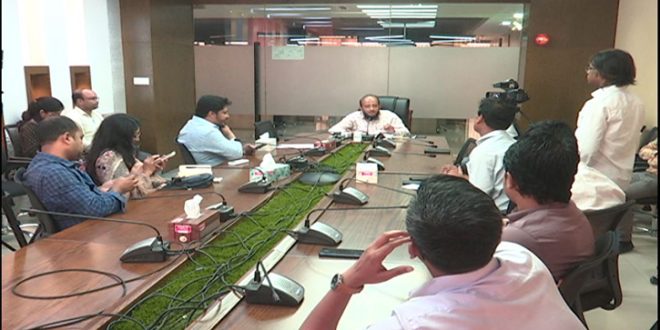The cabinet has given approval to the “Personal Data Protection Act-2023”. As a result of this act, Facebook and Google will not be able to take any information outside the country without the permission of the citizen.
Director general of the National Cyber Security Agency Abu Sayed Md. Kamruzzaman, informed journalists about this on a press briefing at ICT division Agargaon On Monday (November 27)-2023.
The Cabinet has approved the Personal Data Protection Act-2023 to hold companies like Facebook and Google accountable. This law will prevent Facebook and Google from taking any information outside the country without the citizen’s permission.
Abu Sayed said that if someone gives Facebook and Google their information, those companies should keep the evidence. Kamruzzaman added.
He also informed that a data protection board of four members headed by a chairman will be constituted. A set of rules will also be drafted, where Facebook and Google will be obliged to provide any information the government requests.
The law will then be sent to the law ministry. After the selection will be sent to the President. The Act will come into force after the assent of the President. The entire process may take at least a year to complete possibly, he said
According to a press release, the process and innovative information of all public and industries, domestic institutions or individuals related to trade and commerce need to be protected for the purpose of building a smart Bangladesh.
In view of this, initiatives were taken to draft the ‘Personal Data Protection Act, 2023‘. An inter-ministerial meeting was held on April 17 last year regarding this draft law. Later, public opinion was taken through several meetings, workshops, website displays.
The draft of the ‘Personal Data Protection Act, 2023’ was revised and finalized by the ‘Bangla Language Implementation Cell (BABACO)’ of the Ministry of Public Administration.
Subsequently, the draft law was revised through stakeholder consultation and the Cabinet Division’s ‘Committee on Scrutiny of Draft Laws’ recommended submission of the draft law to the Cabinet meeting.
The salient features of this Act are to ensure the establishment of a regulatory body within the existing administrative system to oversee and monitor data processing activities; to regulate the collection, processing, storage, use or re-use, transfer, disclosure, destruction and related matters of any individual’s personal data; To ensure the safe use of data in science and technology research and innovation for the economic development of the people.
Apart from this, with the aim of overall development of the information and communication technology sector, to regulate the activities related to data protection and its processing and to ensure the use of personal data in the promotion and expansion of free trade in the global environment by following internationally recognized data protection principles.
The work of making “Personal Data Protection Act-2023” started in September 2020 where the opinions of domestic and foreign participants are taken. Data Protection Act 2023 has been reviewed with countries like the United States, United Kingdom, Singapore, Canada, Australia and India in order to protect the interests of the citizens of the country.
This law exists in 162 countries around the world, including the United States, United Kingdom, Singapore, Canada, Australia and India.
 InfoSecBulletin Cybersecurity for mankind
InfoSecBulletin Cybersecurity for mankind














